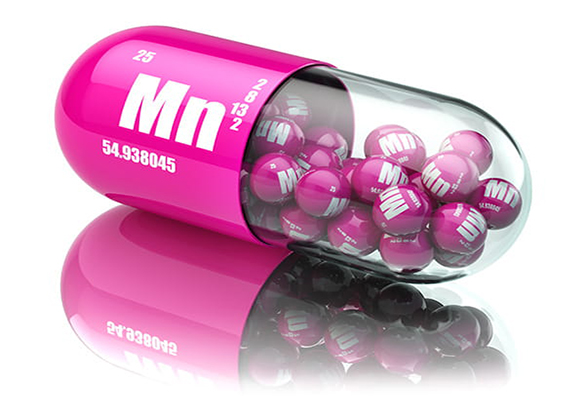
Manganese
Manganese is a mineral found in several foods, including nuts, legumes, seeds, tea, whole grains, and leafy green vegetables. It is an essential nutrient because the body needs it to function efficiently. People also use manganese as a medicine. Manganese is an essential nutrient involved in many of the body's chemical processes, including the undertaking of cholesterol, carbohydrates, proteins, and bone formation.
The effect of manganese lack on health
Hay fever
A lung disease that makes it harder to breathe (chronic obstructive pulmonary disease, or COPD).
Babies weighing less than 2,500 grams (5 pounds, 8 ounces) are born.
Obesity
Arthritis
Premenstrual Syndrome (PMS)
Babies weigh less than one-tenth of a percent at birth.
Wound healing
Anemia
Side effects of taking manganese supplements
When taken orally: Taking more than 11 mg per day orally is probably safe for most adults.
When prescribed for intravenous injection: It is generally recommended that the injectable diet not provide more than 55 micrograms of manganese per day, if used for a long time seriously.
When inhaled: Manganese is likely to be safe if inhaled by adults for a long time.
Manganese Precautions
Be careful not to overdose in any of these cases:
Children 1 to 3 years: Less than 2 mg per day
Children 4 to 8 years: Less than 3 mg per day
Children 9 to 13 years: In amounts less than 6 mg per day
Children 14 to 18 years: In amounts less than 9 mg per day
Pregnancy and lactation: Doses less than 11 mg per day
Prolonged liver disease
People with long-term liver disease have difficulty getting rid of manganese. Manganese can accumulate in these people and cause tremors, mental problems such as psychosis, and other complications.
Iron deficiency anemia
People with iron deficiency anemia seem to absorb more manganese than other people. If you have this disease, be careful not to get too much manganese.
Manganese is likely to be safe in pregnant or lactating adult women 19 years of age and when taken orally.
The required dose of manganese
adults
1. Oral consumption of manganese
Men 19 years and older, 2.3 mg,
Women 19 years and older, 1.8 mg,
Pregnant women 14 to 50 years, 2 mg,
Lactating women, 2.6 mg
The daily requirement of manganese for adults 19 years and older (including pregnant and lactating women) is 11 mg.
2.Intravenous injection
For low levels of manganese in the body (manganese deficiency): To prevent manganese deficiency in adults, a total injectable diet containing a maximum of 200 micrograms of primary manganese advise to take per day.
children
Oral consumption
Infants born up to 6 months, 3 micrograms
7 to 12 months, 600 micrograms
Children 1 to 3 years, 1.2 mg
8 4 mg for 4 to years
Boys 9 to 13 years, 1.9 mg
Boys 14 to 18 years, 2.2 mg
Girls 9 to 18 years, 1.6 mg
Intravenous injection
For low levels of manganese in the body (manganese deficiency): To prevent manganese deficiency in children, a total injectable diet containing 10-10 micrograms or a maximum of 50 micrograms of primary manganese per day.




